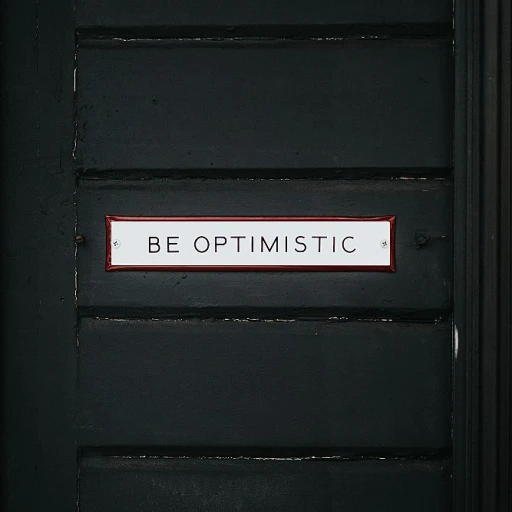The Role of Pre-Adverse Action in Hiring
Purpose of Implementing Pre-Adverse Action
In the employment landscape, pre-adverse action acts as a crucial step, helping streamline the hiring process while maintaining fairness. When an employer decides that a background check contains information that might lead to an adverse decision regarding a candidate's application, this initial step serves as a safeguard for both parties involved in a hiring decision.
For employers, the pre-adverse action notice is a vital part of ensuring compliance with the Fair Credit Reporting Act (FCRA), which mandates specific procedural steps prior to making a final adverse decision. By doing so, employers can avoid legal pitfalls and foster transparent communication with applicants. Sometimes, a background or consumer report may contain errors, leading to potentially unfair outcomes if not properly addressed.
Similarly, for the candidate, the pre-adverse action process provides an opportunity to review and respond to the findings of their background report. This period ensures that the applicant receives a pre-adverse action letter, clearly stating the preliminary decision and details from the report, which could affect their employment prospects.
It’s important to note that this is not the final adverse action, but rather an essential phase that allows for a fair review and dispute of inaccuracies. By understanding the importance of this process, employers can reduce misunderstandings and potential legal challenges, which will be further discussed in the context of compliance and legal frameworks.
For those interested in exploring more about background checks and their detailed processes, including how warrants are considered, take a look at the
understanding warrants in background checks blog post.
Legal Framework and Compliance
Compliance with Fair Credit Reporting Act
In the intricate world of background checks, adhering to legal frameworks is vital for maintaining compliance and fairness. At the heart of this compliance lies the Fair Credit Reporting Act (FCRA), which defines the obligations of employers when they engage in background screenings. Under the FCRA, employers must take several essential steps before making any adverse decision based on a candidate's background check, including issuing a pre-adverse action notice.
The pre-adverse action notice is a crucial part of the process. It's a formal communication that informs the applicant that a negative hiring decision might be on the horizon due to information found in their background screening report. This step not only serves as a form of transparency but also offers candidates a chance to review the findings and address any inaccuracies or provide additional context.
Ensuring Transparency and Fairness
One of the key requirements of the FCRA is to ensure that applicants have sufficient time to respond before a final adverse action is taken. This waiting period provides a vital opportunity for candidates to dispute any incorrect or misleading information. Failing to adhere to this mandated amount of time can lead to significant legal challenges for employers.
The process is designed to protect consumer rights and ensure fair procedures in employment decisions. Employers need to be meticulous in their approach, providing a copy of the consumer report and a summary of FCRA rights to the applicant. This ensures that every candidate is well-informed about the source of information used in the hiring decision and their rights to contest it.
Staying Informed
For employers, understanding and implementing compliant hiring practices is crucial, particularly with evolving state and federal guidelines influencing background checks. For instance, recent legislation such as the
New York Fair Chance Act underscores the importance of compliance with such frameworks.
Remaining vigilant and knowledgeable about these requirements not only helps avoid legal pitfalls but also demonstrates a commitment to fair hiring practices. Employers who prioritize compliance stand to build trust with both candidates and regulatory bodies alike.
Impact on Employers and Job Seekers
Influence on Employers and Job Candidates
The pre-adverse action process plays a crucial role in the employment screening landscape, significantly impacting both employers and job candidates. Understanding the intricacies of this process is vital for maintaining compliance with the Fair Credit Reporting Act (FCRA) and ensuring fair hiring practices.
For employers, the pre-adverse action notice serves as a protective mechanism against potential legal repercussions. By providing applicants with this notice before making a final hiring decision based on a background report, employers can address any inaccuracies in consumer reports. This step not only safeguards the employer from legal challenges but also helps in fostering transparency and trust between the employer and the applicant.
From the perspective of job candidates, receiving a pre-adverse action notice can be both enlightening and stressful. It alerts them to potential issues in their background check, offering them a chance to dispute or clarify any inaccuracies before a final decision is rendered. This process helps ensure that candidates are evaluated fairly and based on accurate information.
The waiting period between the pre-adverse action notice and the final adverse action decision is a critical time for candidates. It gives them an opportunity to review the background report and provide any necessary documentation to challenge discrepancies. For instance, an applicant might need to dispute errors related to credit reporting or clarify issues surrounding consumer reporting agency data.
To navigate these processes effectively, employers and candidates alike benefit from a comprehensive understanding of these elements. This includes being aware of the legal nuances, such as the exact amount of time that should be provided in a waiting period, and the format of the action letter and notice. Employers are encouraged to consult legal professionals to ensure full compliance with current regulations.
Navigating the complexities of the pre-adverse action process is essential for ensuring a fair employment screening environment. Both parties must engage proactively in this process to mitigate potential challenges. For further insight into these dynamics, we explore best practices for employers and common challenges that may arise within this multifaceted domain. Additionally, the
role of IP verification in background checks can further enhance accuracy and reliability in the screening process.
Best Practices for Employers
Key Strategies for Implementing Pre-Adverse Action
Implementing pre-adverse action procedures effectively is crucial for employers aiming to maintain compliance with the Fair Credit Reporting Act (FCRA) and ensuring a fair hiring process. Here are some best practices employers can follow:
- Educate and Train: It's essential for employers to educate their hiring teams about the importance of pre-adverse action notices in the employment process. Regular training on the FCRA guidelines can help ensure everyone understands the significance of delivering a pre-adverse action notice promptly after receiving a consumer report.
- Clear Communication: Employers should clearly communicate the results of the background check to the candidate. Providing a copy of the background report and the FCRA Summary of Rights allows the candidate to review and understand the information that could affect their employment prospects.
- Allow Time for Response: Employers should provide the applicant with an adequate waiting period, typically five business days, to respond to a pre-adverse action notice. This gives them enough time to dispute any inaccuracies in their credit or consumer report before a final decision is made.
- Consistent Documentation: Documenting each step of the pre-adverse action process is vital. This includes maintaining records of the pre-adverse action notice, any correspondence with the candidate, and the final adverse action decision, if applicable. This documentation can be crucial in demonstrating compliance with legal requirements if ever challenged.
- Utilize a Reputable Screening Agency: Partnering with a reliable consumer reporting agency can streamline the background check process. Such agencies often ensure that all reports are accurate and compliant with FCRA standards, minimizing the risk of errors in the pre-adverse action process.
- Transparency in the Process: Employers should strive for transparency throughout the hiring and background screening process. Informing candidates about the purpose of the background check and their rights can help build trust and improve the overall experience.
Being proactive in implementing these best practices can enable employers to navigate the complexities of pre-adverse action procedures, fostering a more trustworthy and compliant hiring environment.
Common Challenges and Misunderstandings
Navigating Common Hurdles and Misunderstandings
Employers navigating the pre-adverse action process can encounter several challenges and misunderstandings, which, if not properly addressed, can lead to issues with compliance under the Fair Credit Reporting Act (FCRA). Understanding these common pitfalls is crucial to ensuring a smooth and lawful hiring process.
- Misinterpretation of Notices: One major challenge is the failure to differentiate between a pre-adverse action notice and a final adverse action letter. The pre-adverse notice informs the candidate of a potential negative employment decision based on information in a consumer report, while the final adverse notice is the subsequent formal decision-making step. Clear differentiation is critical to compliance.
- Incorrect Waiting Period: Another common issue is misunderstanding the amount of time an employer must allow between sending the pre-adverse notice and the final adverse action letter. The FCRA mandates a reasonable amount of time, often considered to be at least five business days. This waiting period ensures candidates can dispute the information or submit additional documentation if necessary.
- Compliance with the FCRA: Compliance extends beyond providing the required notices. Employers must ensure that any background screening conducted respects the rights of the applicant, including securing written consent and providing a copy of the report and FCRA Summary of Rights.
- Incomplete or Inaccurate Information: Employers often face challenges when consumer reporting agencies deliver incomplete or inaccurate background checks. It is essential that employers carefully verify background reports to avoid making decisions based on erroneous data.
- Communication Gaps: Employers and candidates alike may encounter misunderstandings stemming from a lack of clear communication. Providing well-structured communication can prevent misinterpretations at each step of the employment background check process.
Employers should strive to improve their understanding of the adverse action processes in employment to minimize risk and enhance overall compliance. Leveraging expert guidance on FCRA compliance and background screening can help address these common challenges efficiently.
Future Trends in Background Checks
Future Trends in Background Screening: Analyzing the Evolution
The landscape of background checks continues to evolve, with recent years witnessing significant transformations, largely influenced by technological advancements and changes in legal frameworks. As we delve into future trends, it's essential to consider the implications for both employers and job seekers, as the employment process becomes increasingly digitized.
One notable trend is the integration of artificial intelligence (AI) in the background check process. While AI has the potential to streamline operations and improve efficiency, it raises questions regarding privacy and compliance, particularly concerning the Fair Credit Reporting Act (FCRA). Employers must maintain a delicate balance between leveraging technology and ensuring compliance with regulations, especially when it comes to issuing pre-adverse action notices and final adverse action letters.
Another trend is the growing emphasis on the accuracy of background reports. With the rise of consumer reporting agencies, there is a push for more thorough background screening to avoid discrepancies in consumer reports. This emphasis is crucial, as inaccuracies can lead to adverse action against candidates, potentially resulting in legal disputes and damage to an employer's reputation.
Additionally, the role of compliance will continue to be at the forefront of background checks. As regulations evolve, employers must stay informed about changes that influence the pre-adverse action notice timing and the waiting period before making a hiring decision. This not only ensures adherence to compliance standards but also fosters trust with applicants.
Finally, there is a growing trend towards transparency and candidate-centric practices. As part of the background check report process, employers are increasingly providing candidates with clear documentation and explanations regarding any adverse decisions made. This proactive approach not only helps in mitigating misunderstandings but also enhances the candidate experience, aligning with best practices discussed.
In summary, the future of background screening is poised for continued change, driven by technological innovations and the shifting regulatory landscape. Employers who adapt to these trends while remaining compliant and candidate-focused can position themselves for success.












